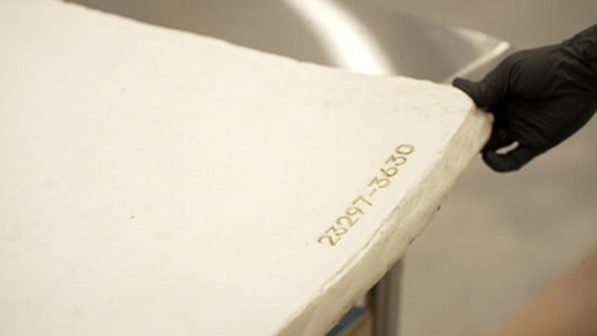
MycoWorks, a San Francisco-based biomaterials company and maker of new mycelium-grown materials, has announced that its commercial-scale Fine Mycelium™ plant has successfully harvested over a thousand sheets of the company’s luxury leather-alternative biomaterial, achieving a level of product quality exceeding that of its California pilot plant.
The company says this has allowed it to move to the next phase of its production ramp-up, loading over 10,000 trays, as of early January, that will be harvested in the coming weeks. The company’s first revenue-generating shipments have left MycoWorks South Carolina several months ahead of schedule, soon to arrive to clients and partners who have pre-reserved nearly two years worth of Mycoworks South Carolina’s capacity.
The sheets will first pass through the hands of MycoWorks’ partner tanneries across Europe, transforming Fine Mycelium™ into products including the company’s own flagship material Reishi™–a fully grown, customizable, and low-carbon biomaterial with the strength, handfeel, and durability of fine natural leathers.
After breaking ground on the facility in August of 2022, MycoWorks commenced operations at the South Carolina plant in September of 2022 and harvested its first sheets there in November. The company has developed the expertise in making mycelium materials, which are made from the filaments (hyphae) of fungi.to successfully scale it up by adding key elements of automation, which is a first for biomaterials.
The product’s process engineers mycelium during growth to form dense sheets of biomaterial in a scalable tray-based system. Until recently, only one sheet of Fine Mycelium could be harvested per tray; today, two sheets per tray are being harvested. The company will begin implementing this process in 100 percent of production by the end of 2024.
Furthermore, the company has developed the capacity to ship its product in untanned, “wet” form to tannery partners. Eliminating the costly initial tanning (stabilizing) process, and cutting the need for further chemistry through wet shipments, has both reduced cost and led to higher quality output at tanneries processing Fine Mycelium into Reishi.
The company reports that Reishi has a very low carbon footprint, between 2.7-5.8 kg/m2. Finished sheets are near-zero plastic and remain biodegradable.
 TEXTILES.ORG
TEXTILES.ORG


